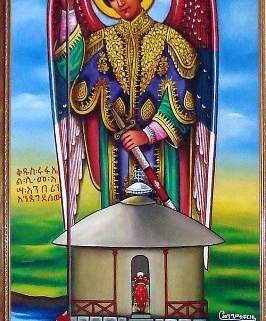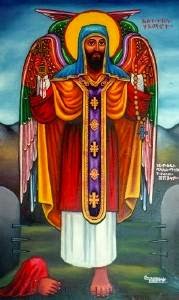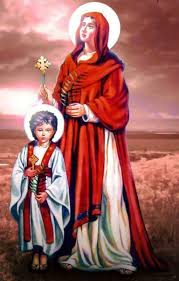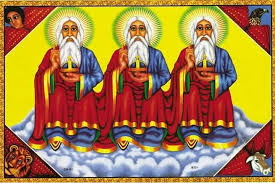Archangel Raphael
Glory to Raphael the archangel, the third of the vigilant, holy and heavenly archangels; and the dedication of his church which was built to him on an island outside the city of Alexandria in the days of Saint Theophilus the Archbishop; and the miracle which was made manifest therein.




